
Bryan
Bryan is a seasoned cosmetic chemist with extensive experience in developing innovative skincare and personal care products. With a background in specialty chemicals and a deep understanding of both formulation science and ingredient. His expertise spans from concept creation to market-ready solutions, making him a trusted source in the industry. Bryan's passion lies in creating safe, effective, and eco-friendly formulations that align with modern skincare needs and consumer demands
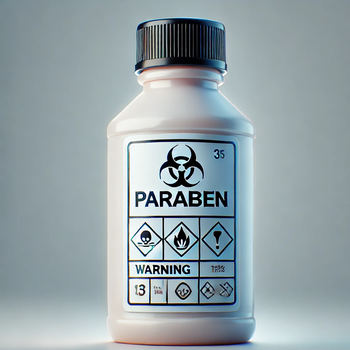
What Are Parabens, and Why Are They Used in Skincare?
16.11.2024
bryan choong
In the skincare world, parabens are both commonly used and widely debated. As preservatives in cosmetics and personal care products, parabens prevent bacterial growth and ensure products remain safe and effective for extended periods. However, concerns about their potential health effects have sparked controversy. Here’s what parabens are, why they’re used, and why they’re so controversial in the skincare industry.
Silicone in Skincare: What It Is, Why It’s Used, and Why Some Consumers Avoid It
16.11.2024
bryan choong
In the world of skincare, silicone is a common yet controversial ingredient. Known for its smooth, silky texture and ability to create a protective barrier on the skin, silicone is used widely in moisturizers, primers, and other cosmetic formulations. However, concerns about potential health effects, such as endocrine disruption, have prompted some consumers to seek silicone-free products. This article explores what silicone is, why it’s used in skincare, and the pros and cons associated with it.
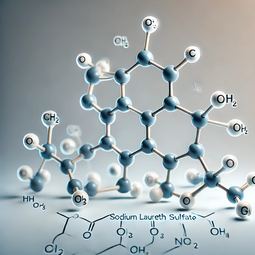
Sulfates in Skincare: What They Are, Why They’re Used, and Why Some Consumers Avoid Them
16.11.2024
bryan choong
In skincare and personal care products, sulfates are common yet controversial ingredients. Known for their powerful cleansing properties, sulfates are the compounds that give many cleansers, shampoos, and body washes their rich, foamy lather. Despite their effectiveness, sulfates have sparked debate, with some consumers seeking sulfate-free alternatives due to concerns about potential irritation and environmental impact. This article explores what sulfates are, why they’re used in skincare, and the pros and cons associated with them.
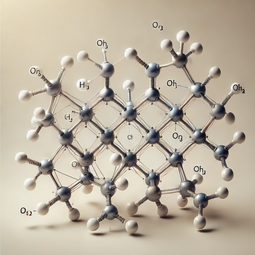
Ethoxylates in Skincare: What They Are, How They’re Used, and Why They’re Controversial
16.11.2024
bryan choong
Ethoxylates are a group of compounds widely used in skincare and personal care products, commonly found in surfactants, emulsifiers, and solubilizers. Known for their ability to enhance texture, stability, and cleansing performance, ethoxylates help various ingredients blend smoothly and provide a satisfying feel. However, some ethoxylates are controversial due to potential contamination with harmful by-products. In this article, we’ll explore what ethoxylates are, their role in skincare, the pros and cons of using them, and why certain consumers prefer to avoid them.
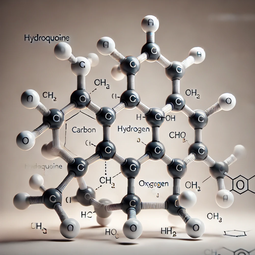
Hydroquinone in Skincare: Uses, Benefits, and Why It’s Controversial
16.11.2024
bryan choong
In the world of skincare, hydroquinone is one of the most effective—and controversial—ingredients for treating hyperpigmentation, melasma, and dark spots. Known for its skin-lightening properties, hydroquinone has been a go-to ingredient in dermatology for decades. However, concerns about its safety and potential side effects have led to regulatory restrictions in some countries. Here’s a closer look at hydroquinone, why it’s used, its pros and cons, and the controversies that surround it.
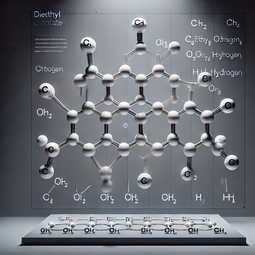
Phthalates in Skincare: What They Are, Why They’re Used, and Why They’re Controversial
16.11.2024
bryan choong
Phthalates are a group of synthetic chemicals commonly used in various industries, including cosmetics and skincare, due to their versatility. They’re often added to products to enhance flexibility, stability, and fragrance longevity. However, in recent years, phthalates have become controversial, with some studies suggesting they may disrupt hormone function and potentially pose health risks. Here’s a closer look at what phthalates are, why they’re used, and why they’ve become a point of concern in skincare.
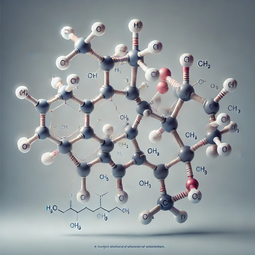
Triclosan in Skincare: What It Is, Why It’s Used, and Why It’s Controversial
16.11.2024
bryan choong
Triclosan is an antibacterial and antifungal agent that has been widely used in skincare, personal care products, and household items for decades. Known for its effectiveness in killing bacteria, triclosan has become a common ingredient in soaps, body washes, toothpaste, and other personal care products. However, concerns about its safety and environmental impact have made it a controversial ingredient, with some regulatory bodies limiting its use. This article explores what triclosan is, why it’s used, the pros and cons, and the controversies surrounding it.
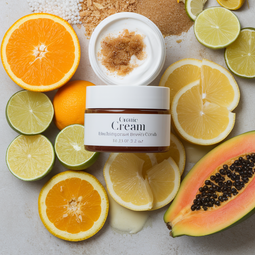
Photosensitive Ingredients in Skincare: What They Are, Why They’re Used, and How to Use Them Safely
16.11.2024
bryan choong
Skincare formulations often include active ingredients designed to target specific concerns, such as acne, hyperpigmentation, or aging. Some of these ingredients, however, come with an important caution: they can make the skin more photosensitive, increasing susceptibility to sunburn and pigmentation when exposed to sunlight. Understanding what photosensitivity is, which ingredients are involved, and how to use them safely can help you reap the benefits of these powerful ingredients without compromising skin health.
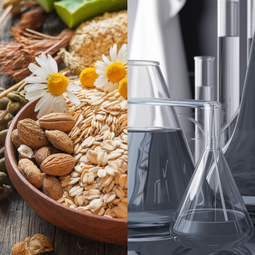
Natural vs. Synthetic Skincare: What’s the Difference, and Which Is Right for You?
16.11.2024
In today’s skincare landscape, natural and synthetic ingredients often take center stage in product formulations, each with unique benefits and characteristics. Consumers looking for effective skincare may wonder about the differences between the two, and which type is best suited for their skin and values. Here’s a closer look at what defines natural and synthetic skincare, the pros and cons of each, and how to make an informed choice that works for your skin.
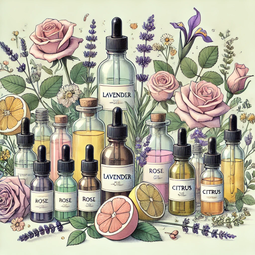
Synthetic Fragrance vs. Essential Oils: Which Is Better for Your Skincare?
16.11.2024
Fragrance is a significant aspect of skincare products, often influencing our buying choices and overall experience. When it comes to choosing a fragranced product, consumers face two primary options: synthetic fragrances and essential oils. While both provide a pleasing scent, they differ in origin, effects, and potential benefits or drawbacks. This article compares synthetic fragrances and essential oils, offering a balanced perspective to help you decide which is best for your skincare routine.
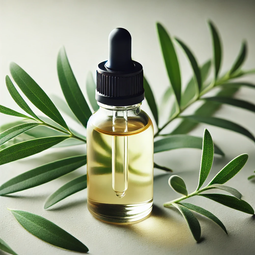
Tea Tree Oil: Benefits, Uses, and What You Should Know Before Using It
16.11.2024
bryan choong
Tea tree oil has become a staple ingredient in skincare for its reputed antibacterial, antifungal, and anti-inflammatory properties. Derived from the tea tree plant, it’s used in a wide range of personal care products, from acne treatments to shampoos. However, like any potent ingredient, tea tree oil comes with certain limitations and requires proper use to be effective and safe. Here’s everything you need to know about tea tree oil, including its origin, uses, limitations, and key compounds.